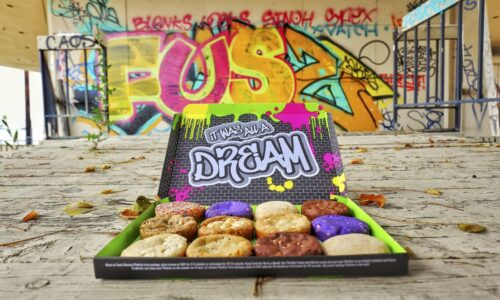“We even tried to eat orange peels and tomato paste. Sleeping outside those tall buildings…rats running all across your chest, cockroaches stealing your last candy bar.”
Jimi Hendrix
[I]n the mid-1960s, Jimi Hendrix was a struggling African-American artist, aspiring to make a name for himself in the music industry.
Thanks to his astounding guitar playing skills, he toured the country with a number of R&B musicians, including The Isley Brothers, Don Covay, and Little Richard. (Little Richard booted Hendrix out of his backing band because he felt the singer was too flamboyant).
While Harlem-based R&B combo Curtis Knight and The Squires never obtained the level of fame as the acts above, Knight made it into the history books thanks to his association with Jimi Hendrix.
It was also the commencement of a four-decade struggle for control of the earliest known professional recordings of Jimi Hendrix.
 |
| Ed Chalpin |
The story originates with Ed Chalpin, the founder of PPX Records. In the first half of the 1960s, PPX became known for creating cover versions of American hits, for foreign markets.
Armed with international success, Chalpin started producing music at his New York recording studio for the American market. He signed a Harlem R&B combo in 1965 and began manufacturing records for the group, known as Curtis Knight and The Squires.
One member of The Squires was a young Jimi Hendrix, who was introduced to Curtis Knight in October of 1965, while living in Manhattan.
Curtis Knight and The Squires subsequently went to the studio and recorded their first single, “How Would You Feel.”
 |
| A young Jimi Hendrix as a member of Curtis Knight and The Squires. |
After the session, Chalpin presented Jimi Hendrix with a contract to sign. Hendrix believed he was signing a release as a backing musician, but it turns out it was a three-year contract, giving Hendrix a paltry 1% royalty.
Chalpin is not entirely to blame. A variety of music industry executives complained that Jimi would sign any contract presented to him if it paid immediate dividends, something that helped complicate his career later on.
At the time, the recordings were irrelevant, even though, a batch contained a young Jimi Hendrix’s professional debut.
Jimi eventually left Curtis Knight and The Squires to for his group, Jimmy James & The Blue Flames. In 1965, Animals bassist, Chas Chandler spotted Hendrix playing “Hey Joe” at the Cafe Wha?.
Chandler took Hendrix to London, where Jimi formed The Jimi Hendrix Experience, with drummer Mitch Mitchell and bassist Noel Redding.
In December 1966, the Jimi Hendrix Experience exploded upon the scene with the tunes “Hey Joe,” “Purple Haze” and “The Wind Cries Mary.”
Jimi Hendrix soon returned to the United States and made his brilliant debut performance at the Monterey Pop Festival in 1967.
It was then that Ed Chalpin resurfaced, notifying record companies that he had an exclusive deal with Hendrix, covering the period from October 1965 through October 1968.
PPX dropped albums highlighting the older material Hendrix recorded with Curtis Knight and The Squires. Soon, various releases hit the market, with titles like Get That Feeling, and Flashing.
The fight over these recordings started upon their release and continued decades after Jimi’s death in September of 1970.
The litigation over the rights to these historic recordings was settled in 2003, when Hendrix’s family won the licenses to the recordings.
[A] new lot of songs is being brought to market this March by Experience Hendrix LLC. Experience Hendrix is the business created by Jimi’s father James. The company is currently managed by Jimi’s sister Janie and controls all rights to the singer’s intellectual property.
You Can’t Use My Name contains a number of rarities acquired from PPX, including an early political statement by Hendrix, who was often accused of “acting white,” because of his style of dress and music.
Hendrix, who was briefly a member of the group “Ghetto Fighters,” tackled the topic of race early on. His 1966 song “How Would You Feel,” discusses the issue and is highlighted in the collection.
| Did Jimi Hendrix know that he was going to die? Was it a conspiracy by the government? You have to listen to this!! |
Also unearthed for the first time for public consumption is studio chatter featuring Jimi Hendrix requesting Chalpin, not to use his name in the marketing of the recordings and the label head grudgingly agrees.
“We are extremely delighted to now be in a position to offer these rare, historic recordings,” said Experience Hendrix President and CEO Janie Hendrix.
“What makes them so special is that they provide an honest look at a great artist during the pivotal time when he was on the cusp of his breakthrough,” Janie said. “A time when Jimi’s number one priority was playing and recording, and this set captures him doing just that, both as a collaborator and an innovator. They are more than just recordings, they represent a significant segment in the timeline of Jimi’s musical existence.”
Jimi Hendrix’s original engineer Eddie Kramer went to great measures to reconstruct the sound using the latest in audio technology.
“It’s a continuing archeological sound dig which is to say you sweep away the dirt with a fine brush and find the gem hidden therein,” Kramer explained. “It’s what I call ‘forensic audio’ where we use every available piece of outboard gear and plug-ins and whatever tools are available to us. It’s been hours and hours of intensive work but it’s truly been fun to find the best performances and to make sense out of them.”
PPX is still in business. The company claims the international rights to live recordings by Hip-Hop group Public Enemy, reggae star Jimmy Cliff and singer Chubby Checker.
You Can’t Use My Name: Curtis Knight & The Squires (featuring Jimi Hendrix) will land in stores on March 24. Check out the tracklist below:
1) How Would You Feel
2) Gotta Have A New Dress
3) Don’t Accuse Me
4) Fool For You Baby
5) No Such Animal
6) Welcome Home
7) Knock Yourself Out [Flying On Instruments]
8) Simon Says
9) Station Break
10) Strange Things
11) Hornet’s Nest
12) You Don’t Want Me
13) You Can’t Use My Name
14) Gloomy Monday




